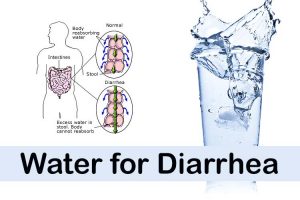 Diarrhea is classified by frequent, loose, and watery bowel movements. It occurs when the body does not absorb enough fluid or the digestive system overproduces fluids. Loose stools contain more water, salt, and minerals than solid stools and weigh more.
Diarrhea is classified by frequent, loose, and watery bowel movements. It occurs when the body does not absorb enough fluid or the digestive system overproduces fluids. Loose stools contain more water, salt, and minerals than solid stools and weigh more.
Water is the most essential compound for life; without water, no one would survive. Water treats many health and beauty problems. This article focuses specifically on the effect of consuming sufficient water has on preventing diarrhea.
Coconut Water for Diarrhea:
Coconut water is a healthy and refreshing beverage that is naturally produced in the environment. It is rich in electrolytes, such as sodium and potassium, which is very effective at preventing diarrhea and dehydration. Coconut water is an excellent way to prevent and cure diarrhea.
Is Coconut Water Good for Diarrhea?
Yes! Coconut water is an effective remedy for the treatment of diarrhea thanks to the properties mentioned below.
- Coconut water is effective at treating even severe cases of dehydration caused by diarrhea. Its unique chemical composition allows the body to rehydrate, while strengthening the immune system and providing energy.
- Coconut water boosts blood circulation and maintains the proper pH level of bodily fluids. It is also full of electrolytes, which provide essential minerals and energy for the body. 100 ml of coconut water contains 250mg of potassium and 105mg of sodium.
- The osmolality of tender coconut water is greater than oral rehydration therapy (ORS). Coconut water has the presence of other biological constituents that are rich in electrolytes and nutrients like amino acids, vitamin C, magnesium, manganese, enzymes, minerals, and fatty acids. It is also low in sodium and chloride, but rich in sugars.
- Note: Excessive consumption of coconut water can have the opposite effect and cause diarrhea in some people.
How to use Coconut Water for Diarrhea:
- Drink a glass of coconut water twice a day for optimal relief.
- OR Mix a cup of coconut water with ¼ cup of orange juice and a pinch of salt.
- Drink regularly to prevent or cure diarrhea.
Does Coconut Water give you Diarrhea?
Some people who drink coconut water experience diarrhea; others are able to easily digest coconut water and find that it actually prevents and treats diarrhea. A person’s ability to digest coconut water depends primarily on how sensitive he or she is to sugar, which is a main component of coconut water. Many people have a difficult time digesting fructose, which can ultimately lead to diarrhea. In individuals who are unable to absorb the fructose, the fructose will pass into the colon relatively intact before it is broken down into fatty acids by the gut bacteria. Fatty acids lead to a host of uncomfortable symptoms, including diarrhea, gas, bloating, and abdominal pain. To avoid these symptoms, it is recommended to take the appropriate amount of coconut water and to decrease that amount if you have difficulty absorbing sugars.
1. Rice Water for Diarrhea:
Rice water has starch-like sugars that tend to draw less fluid out of the body in comparison to other simple sugars, like glucose. Diluted rice water is even better at penetrating the digestive system quickly and helping to prevent diarrhea.
Method – 1: Rice Water
- Rise ½ cup of rice in clean water.
- Place rice in a large pot and add 2 liters of water to it.
- Bring the water to a boil and stir occasionally to prevent the rice from sticking.
- Boil for 5-10 minutes.
- OR Add 1 cup of brown rice to 6 cups of water and boil for 15-20 minutes, until the rice is fully cooked.
- Add a pinch of salt and mix well.
- Separate the rice from the water and put the water to the side until it cools.
- Once the water has cooled, consume the water to help treat diarrhea.
- Note: Rice water can be consumed as frequently as needed to prevent diarrhea. Young children may also be given rice water for their diarrhea.
- Note: Drinking rice water while warm can worsen the diarrhea problem.
Method – 2: Rice Water with Rice Flour
- Add 1 cup of white or brown rice to 3 cups of boiling water and boil for 15 minutes.
- After the rice is cooked completely, separate the rice and water with a cloth, pouring the water into a glass.
- Allow the water to cool for a few minutes.
- Take a small cup of rice flour and eat several tablespoons, drinking the rice water to help you swallow the flour.
- Note: For infants, the rice mixture should be given with some sugar and milk. For older children and adults, this mixture should be consumed after taking rice water. The mixture will cure the diarrhea and give you some energy.
Method – 3: Rice Water with Raisins
- Rise 4 tablespoons of rice and place in a saucepan.
- Pour a tablespoon of raisins and 1.5 pints of boiling water.
- Allow mixture to boil gently for about an hour, and then strain for the water.
- Serve the water cold by adding salt or sugar to it.
2. Lemon Water for Diarrhea:
Lemon water or juice helps to kill the bacteria that are responsible for the diarrhea. It also sooths irritation in the intestines by eliminating wastes more efficiently and is an easily available home remedy.
Method – 1: Lemon Water
- Extract the juice from one or two fresh lemons.
- Add ½ cup of hot water and mix well.
- Sip the water mixture to help get rid of diarrhea.
- Repeat 2-3 times per day until you experience complete relief.
- Note: You can take 1-2 tablespoons of lemon juice before meals to kill pathogens that could potentially cause diarrhea.
Method – 2: Lemon with Ginger
- Take 2 teaspoons of lemon juice, ½ teaspoon of ginger paste, and a pinch of black pepper.
- Mix the ingredients in a small bowl to make a fine paste.
- Consume this paste twice a day to prevent diarrhea.
Method – 3: Lemon Water with Chamomile
- Take one cup of warm water and add a teaspoon of dried chamomile.
- Let the chamomile steep for a few minutes, and then strain the tea.
- Add a teaspoon of lemon juice to the tea, stir, and drink to help treat indigestion and diarrhea.
Method – 4: Lemon Water Recipe
- Squeeze the juice of ½ lemon into a glass and pour cold water into it.
- Add maple syrup, ground ginger, and cayenne pepper to the lemon water.
- Stir well and drink in the morning to prevent diarrhea problems.
Method – 5: Lemon with Ginger and Powdered Pepper
- Combine ½ teaspoon each of lemon juice and ginger juice.
- Mix 1/4 teaspoon of powdered pepper into the juice.
- Drink twice a day or until watery stools are reduced.
2. Salt Water for Diarrhea:
Diarrhea often leads to dehydration if it is not properly treated. In order to rehydrate yourself and cure diarrhea, try the following salt water methods.
Method – 1: Salt and Sugar Solution
- Combine a tablespoon each of sugar and salt.
- Add sugar and salt mixture to a quart of water and stir well.
- Drink the solution to rehydrate yourself and prevent diarrhea.
- Consuming this mixture 2-3 times per day will provide your body with the necessary glucose and electrolytes necessary to rehydrate.
- Note: Frequently drinking broth with salt will yield the same results.
Method – 2: Salt with Orange Juice
- Take 2-3 fresh oranges, remove the skin, and put through a juicer or in a blender.
- Blend 2-3 fresh oranges
- Add ¼ teaspoon of salt, 1 teaspoon of sugar, and 1 and 1/3 cup of water.
- Mix ingredients well and drink throughout the day to treat diarrhea and rehydrate.
Method – 3: Salt Water Solution
- Dissolve one teaspoon of salt into a glass of water.
- Drink to prevent and treat diarrhea and dehydration.
- Note: Lemon juice or sugar may be added for flavor.
Method – 4: Salt with Baking Powder and Lemon Juice
- Combine 1/3 cup lemon juice with 1/3 cup water, ½ teaspoon of salt, and ½ teaspoon of baking powder.
- Drink at room temperature or freeze into a Popsicle.
Method – 5: Salt with Sugar Solution for Infants
- Take ¼ teaspoon of sea salt and 1 teaspoon of sugar.
- Add salt and sugar to a cup of water and stir well.
- Pour the solution into a bottle and allow the infant to drink the entire bottle.
- The solution will help replenish electrolytes that aid in digestion and prevent dehydration.
3. Jell-O Water for Diarrhea:
Jell-O helps to treat diarrhea because the gelatin helps bind the stool and stop the diarrhea while rehydrating.
Method – 1: Jell-O Water For Children
- Dissolve a packet of gelatin according to the instructions on the package.
- Dilute it with 2 cups of water and pour the water solution into a bottle or Sippy cup.
- Allow the child to drink the mixture throughout the day for relief from diarrhea and dehydration.
- Regularly consume this liquid until you get relief. The liquid may also be frozen and served as a Popsicle.
- Note: Avoid choosing a flavor that is not red in color as artificial coloring in the gelatin may color the stools.
Method – 2: Jell-O Water For Adults
- Take a Jell-O packet and make it according to the package directions.
- Add enough cold water to make it drinkable.
- Drink the Jell-O mixture before it sets.
4. Does Drinking Water help Diarrhea?
Drinking plenty of water is crucial for diarrhea sufferers to avoid dehydration, but it is also important to ensure that you are drinking water that is free of harmful bacteria, viruses, or parasites. Water intoxication can occur in certain conditions, such as water that has been contaminated. If you experience diarrhea after drinking a lot of water, consider reducing your water intake.
5. Tap Water for Diarrhea:
Avoid drinking tap water as it can occasionally be contaminated with bacterial and viral infections. Though tap water is safe for brushing teeth, it should not be used to make ice cubes without being purified.
Can Well Water give you Diarrhea?
Well water on its own will not cause diarrhea; however, wells that are polluted by bacteria and other pathogens can cause digestive distress. If there is any suspicion that your well may be contaminated, it is necessary to call the health department so that they can check the well and determine whether the water is safe to drink.
6 Types Of Diarrhea:
1. Water Diarrhea:
Water diarrhea is caused by imbalances in the digestive tract, viral or bacterial infections, medical problems, medications, and food intolerances or allergies. Common viral and bacterial infections that cause diarrhea are viral gastroenteritis; stomach flu caused by norovirus, rotavirus, and adenovirus; campylobacter, and salmonella. Those who have medical problems such as mal-absorption, hyperthyroidism, and diabetes also may struggle with diarrhea. Antacids, magnesium supplements, NSAID’s, antibiotics, chemotherapy drugs, and high blood pressure medications may also affect one’s bowel movements. Finally, food allergies to dairy, yeast, gluten, and sugar may cause diarrhea if that food is consumed. Other medical issues that are similar to, and may be confused with, water diarrhea are cholera, crohn’s disease, and fecal impaction.
Children often suffer from water diarrhea at some point. It is often spread through dirty hands, contaminated food, or touching toilets that may have bacteria or viruses on them. These viruses and bacteria can lead to fever, dehydration, and diarrhea. The rotavirus vaccine is often recommended as a preventative for these symptoms, and can be administered by your child’s pediatrician. Food poisoning and lactose intolerance can also cause diarrhea in children and adults alike.
How to Treat Water Diarrhea?
- Drink plenty of fluids like water, broths, and fruit juices. Diarrhea causes the body to expel water and bodily fluids at a rapid rate, which leads to dehydration. It is important to down fluid as often as possible to prevent dehydration.
- Eat foods low in fiber to help stabilize the digestive system. Crackers, noodles, rice, and chicken are optimal choices when you have diarrhea because they provide quick carbohydrates and protein.
- Regularly taking probiotic supplements can help restore the proper balance of bacteria in your digestive system. The lactobacillus GG probiotic supplement is strongly recommended.
- If symptoms persist, please schedule a visit to your doctor or healthcare provider to obtain prescription medication to alleviate the water diarrhea.
2. Yellow Water Diarrhea:
Yell water diarrhea can be caused by low bile production resulting from viruses, intestinal parasites, bacteria, or even food allergies. Yellow water diarrhea accompanied by pain under the right ribcage often is a sign that the liver or gallbladder is causing the problems. Pain under the left side of the rib cage suggests trouble with the pancreas or spleen.
Yellow water diarrhea is a sign that your body is not able to properly absorb food. It is essential to avoid fatty, oily, and spicy foods as well as to consume electrolytes to resolve this type of diarrhea. It is also possible for food or water contamination, GERD, pancreatic cancer, and human parasites to cause these symptoms, so it is important to see your healthcare professional if pain is chronic or lasts for over 24 hours.
To prevent yellow water diarrhea, one can switch to a liquid diet, eat several small meals in place of large meals, be conscious about drinking more water, and increase consumption of fibrous fruit and vegetables.
3. Green Water Diarrhea:
Green water diarrhea is caused due to diet or supplements consumed over the past few days. First, you should consider whether you ate any green foods, such as leafy green vegetables or foods with artificial dyes; dark purple foods like Kool-Aid, popsicles, or gelatin; or iron supplements or foods rich in iron. It is also possible for infants to experience green water diarrhea depending on the breast milk or type of formula given to them. In older children, it is more likely to occur from diet or sucking on crayons or markers. If symptoms continue for more than two days, you should consult your doctor to avoid dehydration and other serious health problems.
4. Black Water Diarrhea:
Black water diarrhea is a severe form of diarrhea that causes serious dehydration. The black color may be due to altered blood or bleeding from the upper GI tract. Black stools suggest blood loss form the stomach or elsewhere in the digestive system. Over the counter medication like Pepto-Bismol and some foods may make the stool look darker than usual, but often a doctor should be consulted when you are experiencing symptoms like black stool. Drinking a lot of water can help, but if it is not controlled within two days, a healthcare professional is highly recommended.
5. Vitamin Water Diarrhea:
Vitamin water is composed of fortified vitamins and other ingredients for taste, which may include sweeteners, syrups, and other artificial fruit flavors. Vitamin water also contains erythritol, a sugar alcohol that contains fewer calories than naturally produced sugar. Excessive intake of erythritol and other sugar alchohols may lead to adverse physical symptoms, such as diarrhea, stomach pain, and headache, so it is smart to avoid drinking vitamin water when you’re suffering from diarrhea.
6. Clear Water Diarrhea:
Clear water diarrhea comes out in a colorless, water-like substance. Clear water is very contagious, and precautions should be taken to avoid spreading this illness. Separating towels, dishes and utensils as well as providing separate bathroom facilities can help prevent the spread of clear water diarrhea, but if that is not possible, it is best to disinfect the bathroom surfaces. This condition is most commonly caused by viral gastroenteritis and is potentially serious. You should contact a gastroenterologist if you are still experiencing symptoms after a day or two.
Precautions & Tips
- Drink as much water as possible throughout the day to prevent dehydration and rehydrate after an episode of diarrhea.
- Coconut water may lower blood pressure, so you should discuss this option with your healthcare provider before trying it as a remedy if you have blood pressure problems.
- It is better to stop consuming coconut water at least two weeks before and afetrv scheduled surgery as it interfere with blood pressure.
- Consuming too much lemon water can lead to dehydration and, ultimately, cause diarrhea. Please consult with your doctor to make sure you are consuming the proper amount.
- Taking too much salt can cause diarrhea or make the situation worse. Always use the appropriate quantity of salt or oral rehydration therapy (ORS).
- Jell-O water should not be given to children older than 1.5 years.
- Hydration is a continuous process. If you are experiencing or have experienced diarrhea and/or dehydration, you should take these remedies regularly.
- Though distilled water will not cause diarrhea, you should avoid over drinking it because you have a risk of water diarrhea.
Do you know any other water remedies for diarrhea? Or have you tried any of the above methods? Have you tried having yogurt to treat diarrhea? Share your experience with us.
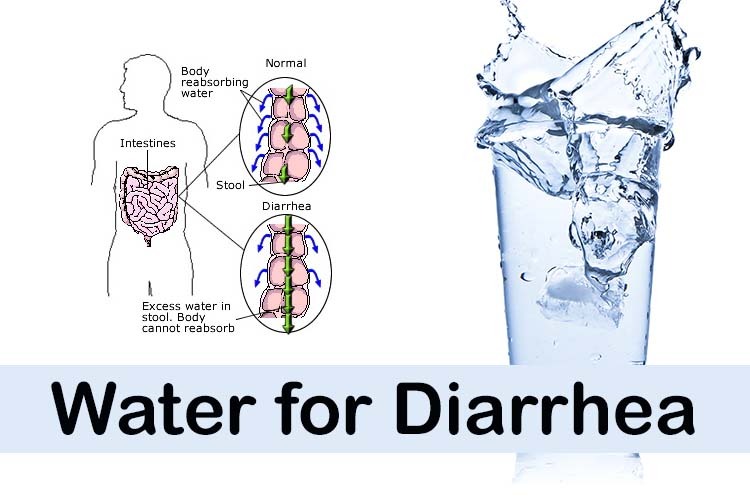
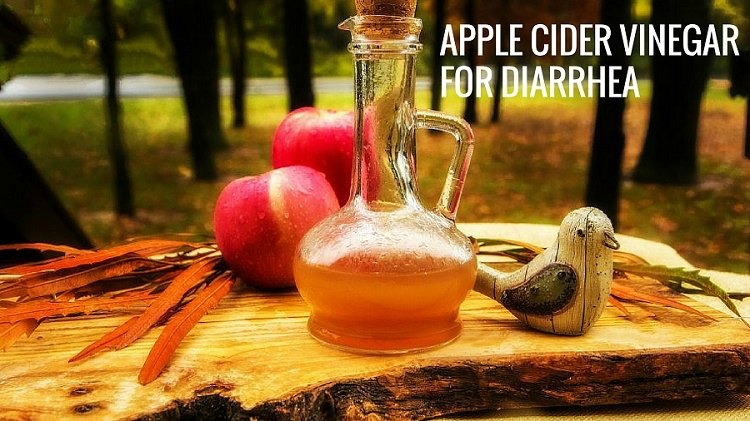


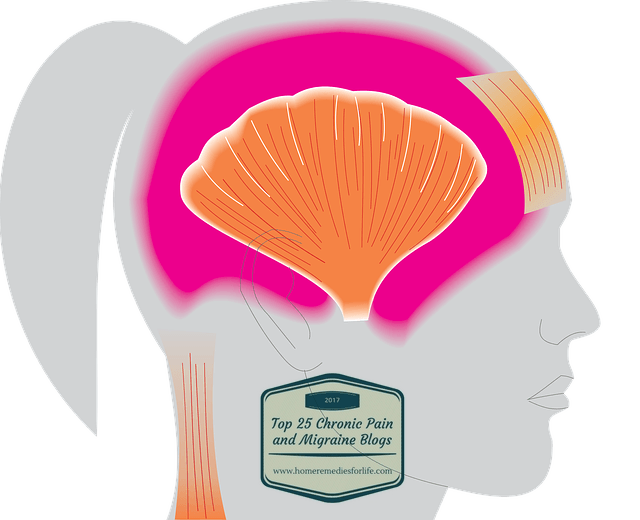



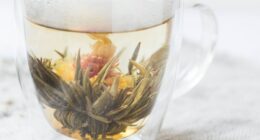

3 comments
can 3 glasses of water first thing in morning cause diahrea ?
No, drinking water in the morning doesn’t cause diarrhea.
Yellow water diarrhea now for 3 days.
I’ve been drinking distilled water and solid food.. no help.